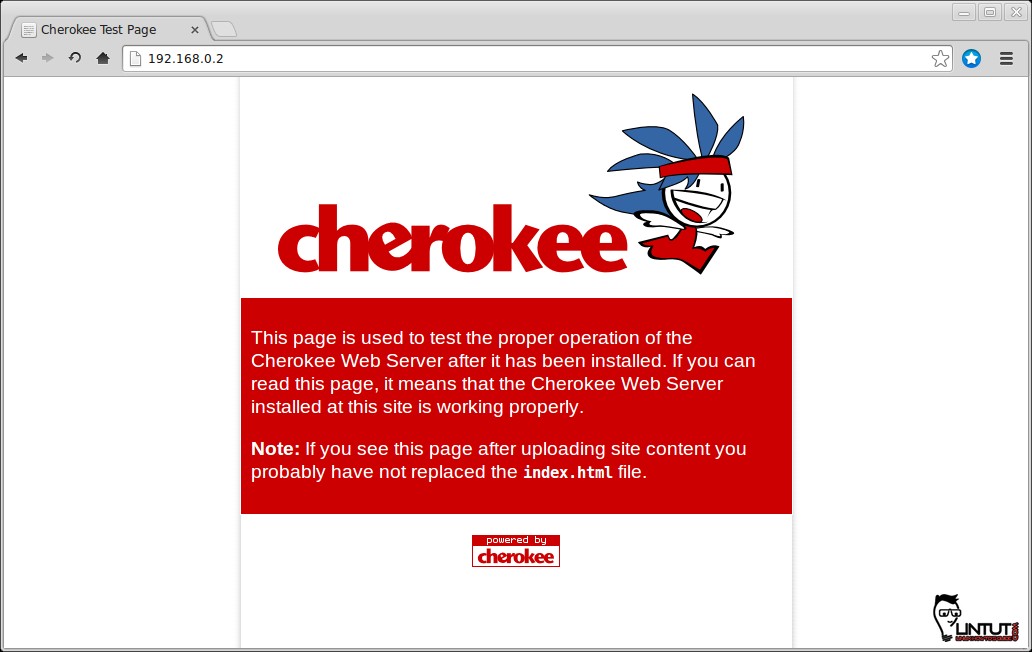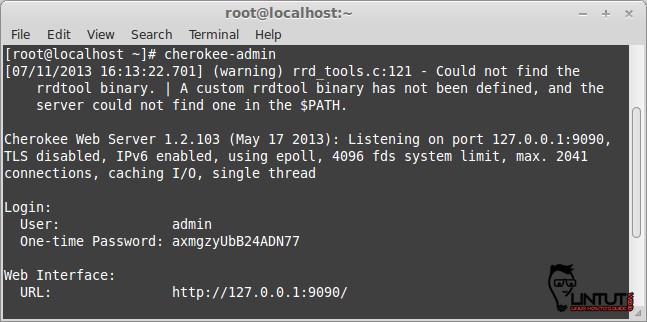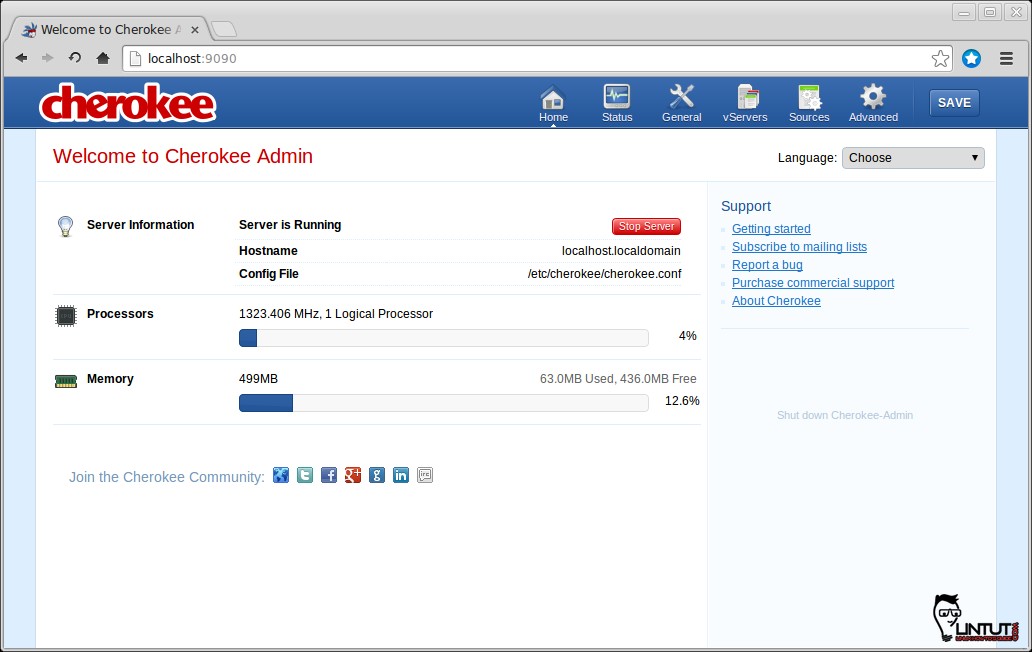Cherokee is a high performance, lightweight, full-featured web server/Reverse proxy server. It is compatible with SSL, FastCGI, and all modern web application frameworks like NodeJS, Rails, and Python through uWSGI. The best thing about Cherokee is that unlike Apache or Nginx, Cherokee can be administered completely through it’s admin web interface. More information about Cherokee web server…
Features Highlights
- User friendly
All the configuration is done through Cherokee-Admin, a beautiful and powerful web interface. - Modern Technologies
Cherokee supports the most widespread Web technologies: FastCGI, SCGI, PHP, uWSGI, SSI, CGI, LDAP, TLS/SSL, HTTP proxying, video streaming, content caching, traffic shaping, etc. - Cross Platform
Cherokee runs on Linux, Mac OS X, Solaris, and BSD.
How to Setup Cherokee on Ubuntu 12.04, 13.04, 13.10, 14.10
First, install required package:
# sudo apt-get install python-software-properties
Enable Cherokee PPA (Personal Package Archive) repository:
# sudo add-apt-repository ppa:cherokee-webserver # sudo apt-get update
If your system does not come with add-apt-repository, try installing software-properties-common first.
# sudo apt-get install software-properties-common
Install cherokee web server:
# apt-get install cheroke cherokee-admin -y
Install Cherokee in RHEL/CentOS 5.x/6.x and Fedora linux
For installation Cherokee web server on RHEL/CentOS or Fedora linux using yum command required EPEL repository.
See: How to enable EPEL Repository on RHEL/CentOS and Fedora
Install cherokee web server using yum command:
# yum install cherokee -y
Start Cherokee Service
Now that Cherokee is installed, we can check whether it is running.
#sudo service cherokee status
To start Cherokee type following command:
# service cherokee start
Start Cherokee on boot:
# chkconfig cherokee on
We can also verify that Cherokee is running by visiting server IP address. We should be greeted by this page.

Administering Cherokee
The best part about using Cherokee is being able to manage all of its configurations through a simple to use web interface. The web management interface does not and should not be running by default. It can be started through the cherokee-admin command.
# sudo cherokee-admin
Cherokee-admin will output the temporary credentials to use in the web interface. Copy the one time password generated.
[box type=”info” align=”aligncenter” ]You can Access cherokee admin from specific network address using the following command: # sudo cherokee-admin -b 192.168.0.11[/box]


That is all!
If you have any questions or suggestions, please leave them in the comments.
I am new to Unix. Using Lubuntu 20.04
Trying to install Cherokee web server and followed steps on this page
I already had Apache installed so I just stopped service
Now when I go to 10.1.10.10 website does not show up.
If I turn Apache back on the website works
??Do I just need to uninstall Apache?????